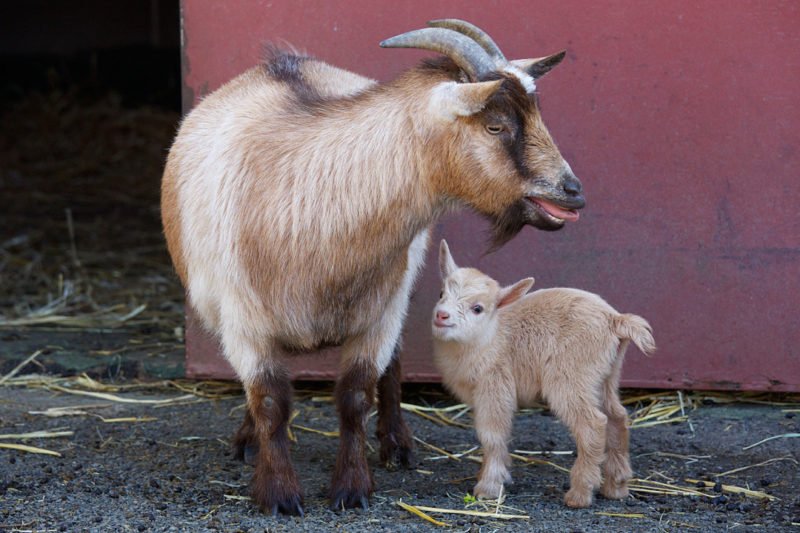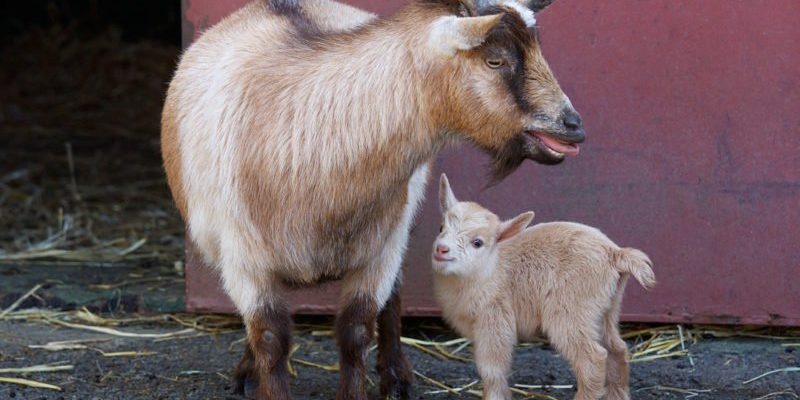
Pygmy goats originated in the mountainous regions of West Africa. They are small but sturdy, perfectly built for their rugged environment. Unlike many other goat breeds, pygmy goats are compact, making them a favorite for small farms and backyards. If you’re wondering whether they might fit into your life, keep reading. We’ll explore their traits, behaviors, and even how they can contribute to your homestead or garden.
History of Pygmy Goats
Pygmy goats have quite an intriguing backstory. Originally bred in Africa for meat and milk, these little goats were used by tribes for their resilience and hardiness. They can thrive on limited resources and rough terrain, which makes them a practical choice for those living in challenging environments.
Thanks to their unique qualities, pygmy goats caught the attention of people beyond their native lands. In the 1950s, they were brought to the United States as exotic pets. Their charming personalities and manageable size quickly made them popular among families and hobby farmers. Isn’t it amazing how a small animal can have such a big impact?
Interestingly, the American Pygmy Goat Association was founded in the 1980s to promote the breed and set standards for their care. This helped ensure that pygmy goats would not only be cherished as pets but also maintained as a distinct breed. Today, they are known for their vibrant and friendly demeanor, making them a sought-after companion for many.
Distinct Traits of Pygmy Goats
One of the first things that capture your attention about pygmy goats is their size. These goats typically stand about 16 to 23 inches tall at the shoulder and weigh between 40 to 100 pounds. Such a tiny frame can be surprising, especially when you see them in action—bounding around as if they own the place!
Pygmy goats have a variety of colors and patterns. You can find them in shades ranging from solid black or white to combinations of brown, gray, and even spotted. This diversity adds to their visual appeal and makes each goat uniquely charming.
Another notable trait is their friendly nature. Pygmy goats are social animals that thrive on interaction, both with other goats and humans. They’re typically playful and curious, often seeking out attention and affection. If you’re thinking about adopting one, be prepared for a lively companion!
Primary Uses of Pygmy Goats
Pygmy goats serve several purposes that can fit various lifestyles. While many people keep them purely as pets, they can also be beneficial for homesteading and small-scale farming.
1. Companionship: Probably the most common reason people get pygmy goats is for companionship. They make excellent pets, providing joy and amusement. Their quirky personalities can bring a lot of light into a household.
2. Milk Production: While pygmy goats aren’t as prolific in milk production as larger breeds, they can still produce a decent amount of milk for personal use. Their milk is rich and creamy, perfect for making cheese or yogurt.
3. Land Management: Pygmy goats are great for keeping weeds and brush under control. They can graze on unwanted plants, helping you maintain a tidy yard without the use of chemicals. This natural method is often more sustainable and friendly to the environment.
Caring for Pygmy Goats
Caring for pygmy goats isn’t too complicated, but it does require some commitment. Here’s a quick rundown of what to keep in mind:
– Housing: Pygmy goats need a safe, dry shelter to protect them from harsh weather. Whether it’s a barn or a simple shed, make sure it’s well-ventilated and has good bedding to keep them comfortable.
– Diet: Their diet mainly consists of grass, hay, and specially formulated goat feed. They also enjoy treats like fruits and vegetables, but these should only be given in moderation. A balanced diet is essential for their health.
– Social Needs: Remember, these goats are social creatures. It’s best to keep at least two together. They’ll become great buddies and entertain each other when you’re not around.
Common Health Concerns
Just like any pet, pygmy goats can face health issues. It’s essential to keep an eye on their well-being. Here are a few common health concerns to watch for:
– Internal Parasites: Goats can be prone to worms and other parasites. Regular deworming and vet checkups can help keep them healthy.
– Hoof Care: Their hooves need regular trimming to prevent overgrowth. It’s something you can do yourself with practice or have a vet or experienced goat owner help.
– Digestive Issues: Pygmy goats are sensitive to sudden changes in diet. Make any dietary transitions gradually to avoid upset stomachs.
Pygmy goats truly are remarkable animals, blending unique history with practical use. Their playful and affectionate nature makes them wonderful companions, while their hardiness and manageable size make them suitable for various living situations. Whether you want a fun pet, a source of milk, or a natural lawn maintenance crew, pygmy goats can fit the bill beautifully.
If you’re considering adding one to your home, you’ll not only gain a joyful companion but also a little friend full of personality. With the right care and attention, these delightful goats can enrich your life in so many ways. So, are you ready to let a pygmy goat into your heart?

